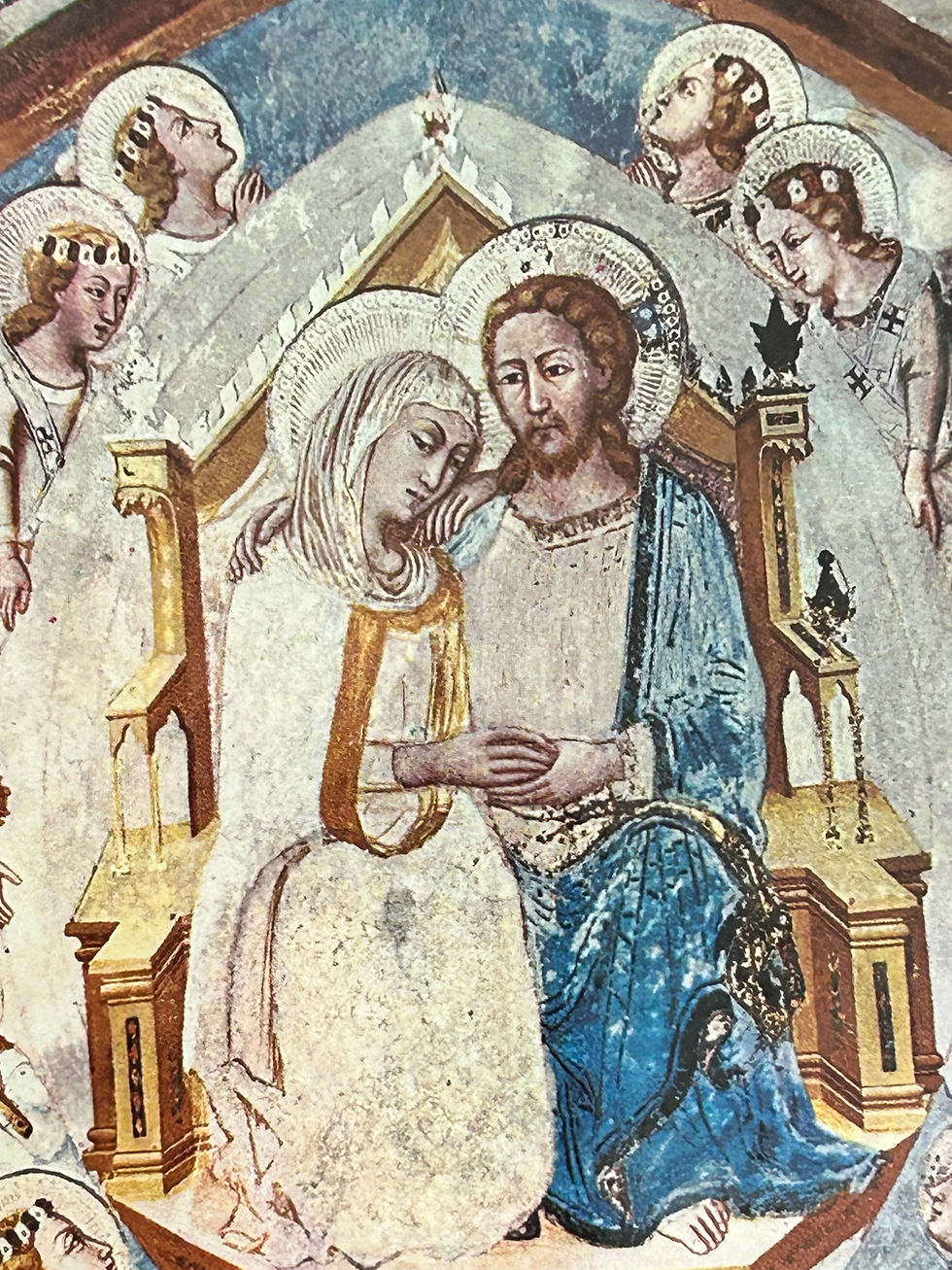Opening our Hearts to the Word
- Dr. Anthony Lilles

- Apr 21, 2012
- 3 min read
How does the mystery of the Risen Lord, the Word of the Father, become part of one's own life? This question reveals the beautiful paradox that lives in God's work in our humanity and in our humanity's grace filled effort in God. Such questions point us to the great mystery - the Word made flesh.

John of the Cross points to this answer in his work Ascent to Mt. Carmel, Book I, Chapter 13. He teaches that if we really want to encounter the Lord, if we really want to find Him, we must resolve first of all to imitate Him in all things. Then, he explains, if we are to be successful in our imitation, we must also carefully study the life of Christ out of devotion to Him. This is where his doctrine gets tough. He observes that when we study the life of Christ we discover that the Lord renounced every satisfaction that was not purely for the honor and glory of God. Saint John of the Cross believes we can enter into deep intimacy with the Lord if we will resolve to do only that which gives God glory and honor - which means renunciation of any delight or comfort which does not give glory to God.
Most everyone questions this logic. Many are frightened by it to some degree. Few understand it. Even fewer live it.
To really understand what St. John of the Cross is saying, we must go beyond a pre-critical guess. The deeper mystery in this teaching is only unveiled if we consider who Jesus is to him and what he means when he invites us to study Christ's life. What does it mean to study the life of Christ Jesus for St. John of the Cross?
St. John of the Cross believed that study of the Scriptures and contemplation, sacred reading and meditation, silent attentiveness to the Word and wonder filled exploration of sacred doctrine; that all of this must be an integrated effort of the heart. He believed in a theology carried out on his knees and in constantly rendering himself vulnerable to the demands of the Gospel of Christ. Such is the power of the Gospel: the more we encounter Christ, the more He animates our innermost being and transforms us in his love.
St. John of the Cross describes the kind of study we should take up as "gazing" at the Lord with eyes of faith - a search for the eyes of the Lord who looks at us in love. It is with this living hope that he himself searched for Christ in prayer and study, contemplation and constant conversion. Conversely, any study that does not ultimately lead to the interior peace that God produces is be a waste of time and a distraction.
Christ for him is the Word of the Father who has come as the Bridegroom of Creation -- the perfection of which is the Church Herself. Each soul that participates as a unique endpoint in this ecclesial life reconstituted as the People God, the Body the Bride of Christ. To live for the Bridegroom like this is to begin to live a life that is not one's own. It is to be animated with the life of Christ within.
The Eternal Word communicates everlasting life - wounding, slaying and raising us up all at once. Whoever He touches, by word and sacrament, by inspiration and presence, He wounds. The Word who was wounded for the sake of love wounds us with love. A soul so wounded wants to live by love and to die by love, to make an offering of self in love. This is because a heart wounded by the Word aches to have been loved so much, and aches over how wonderful the One who so loves. The Bridegroom gives such souls his own Body and Blood, Soul and Divinity to sustain such souls in these noble desires. Anyone who has met the Bridegroom yearns for the wedding feast and for the wonderful things that God has in store for those who believe. For those who ache for love of the Lord, the work of renunciation, of dying to oneself--this is as nothing. What is love if there is no sacrifice and how do we love but at our own expense?

Comments